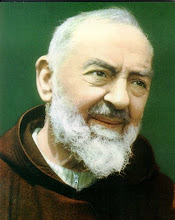-The second purpose of pain is to provide us with the opportunity to fully develop virtues we would have otherwise never learned.
Imagine if your parents never asked anything distasteful of you. You would have never gone to school, never learned to read or write. You would have never given your sibling that much-dreaded kiss, never made up with them... Your life would probably be miserable. Think about what sort of household you would have if you didn't give your children chores. They would not know how to keep their room clean, wash the dishes, or wash their clothes. They wouldn't be able to keep alive a pet or manage keeping a job when they grow up.
 They probably wouldn't get very far.
They probably wouldn't get very far.Our parents didn't ask distasteful things of us only because we deserved it, and we don't give our children chores only when they have done something wrong. Often, things we see as unpleasant, bad, and "evil" are not dished out because we have acted wrongly, but because something good was expected of and given to us. We had to go through the unpleasantness to get it. Virtues are gained through suffering. One cannot learn patience if they have never had to wait for anything. One cannot perfect humility if they have never been humiliated. Oftentimes, we undergo the most despised situations only to come out better people on the other side.
One person could attest to this second purpose of pain very well. Her name is Saint Thérèse of Lisieux. Thérèse was born on January 2, 1873 and became a Carmelite nun at the age of fifteen. After living a quiet and holy life, she died of tuberculosis at the age of twenty-four, on September 30, 1897. A few simple sentences illustrate how she realized the second purpose of pain working in her soul.

"I have noticed that the experience of suffering makes us kind and indulgent
toward others because it is suffering that draws us near to God... Trials help
us detach ourselves from the earth; they make us look higher than this
world."
toward others because it is suffering that draws us near to God... Trials help
us detach ourselves from the earth; they make us look higher than this
world."
Her suffering showed her how fragile life is and brought her to greater awareness of her relationship with God and the goal of heaven. It taught her charity. What can we learn from our own suffering? Patience? Humility, fortitude, or chastity? Love of others? Love of God? Every "pointless evil" has something to teach us, to offer us in the way of becoming better people. It can replace Purgatory, purifying our souls, perfecting our hearts, and readying us to see Our Creator face to face.
Next time we find ourselves in a "pointless evil," we should see it as an opportunity. We should try--like Thérèse--to see the hand of a loving parent, kindly yet firmly teaching us what we will need to know in order to flourish in this life and the next. We may come to realize that it's not really an evil at all.
"I suffer much but do I suffer well? That is the important thing." -St. Thérèse
of Lisieux
TO BE CONTINUED


No comments:
Post a Comment